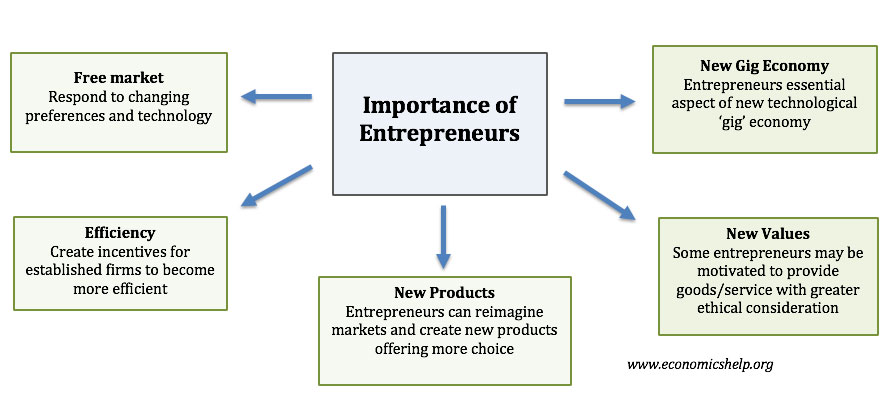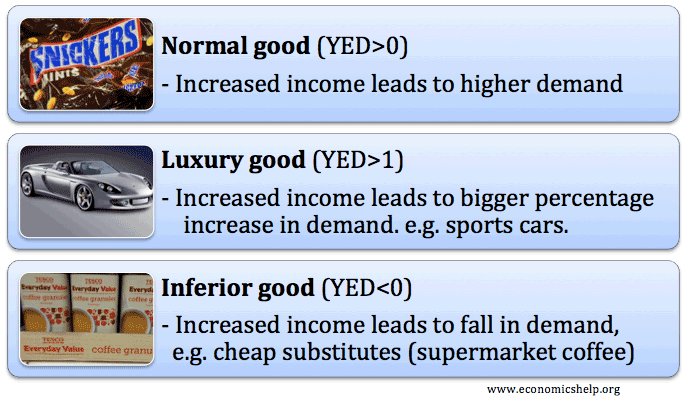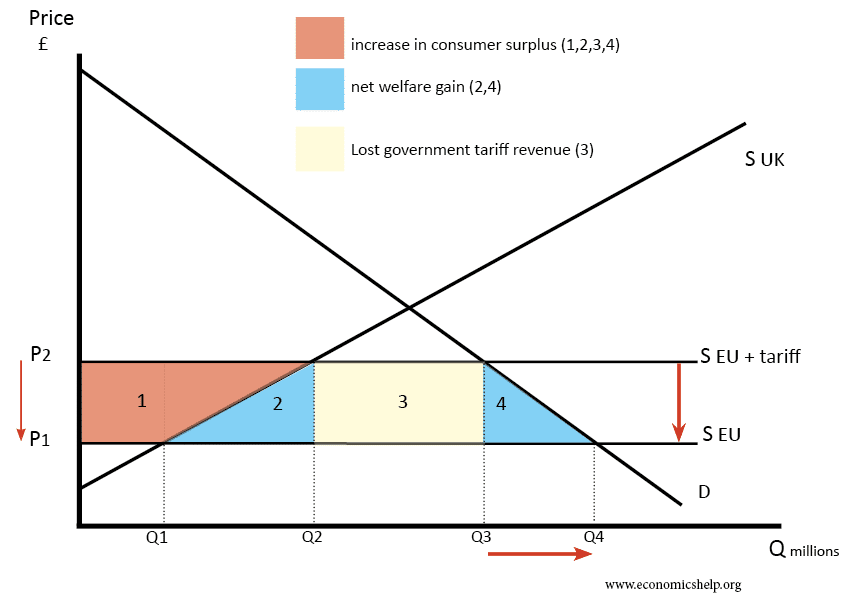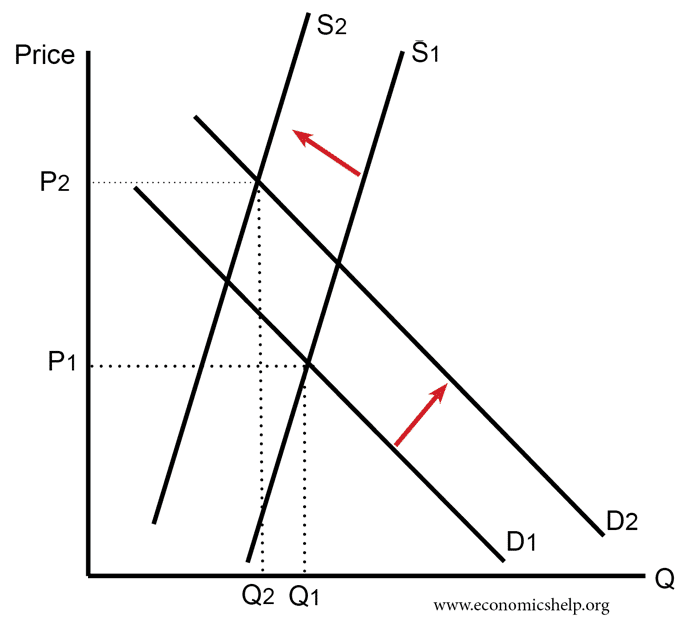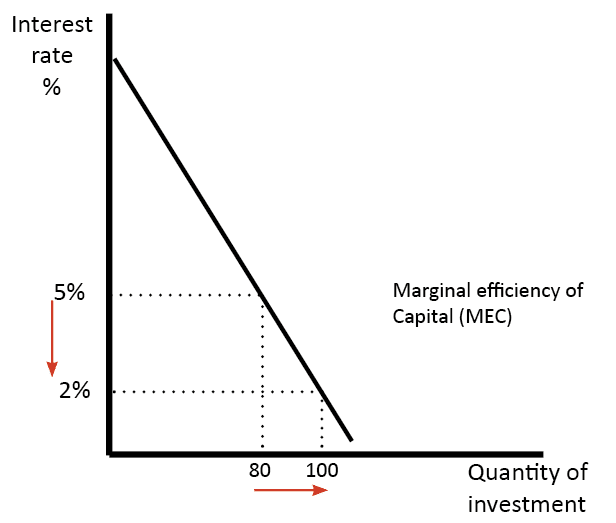The importance and role of an entrepreneur
An entrepreneur is an individual who sets up and grows a business. They combine different factors of production (such as – land, labour and capital) to try and create a new profitable business venture. Entrepreneurs are themselves an important ‘factor of production’ and an essential aspect of a functioning free market economy. Importance of entrepreneurs …

